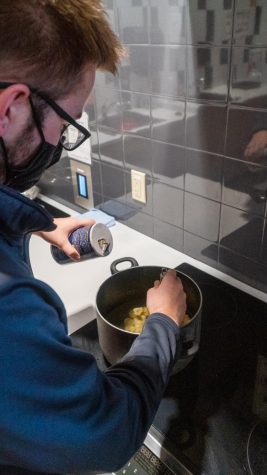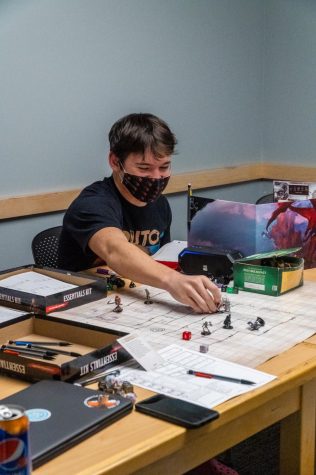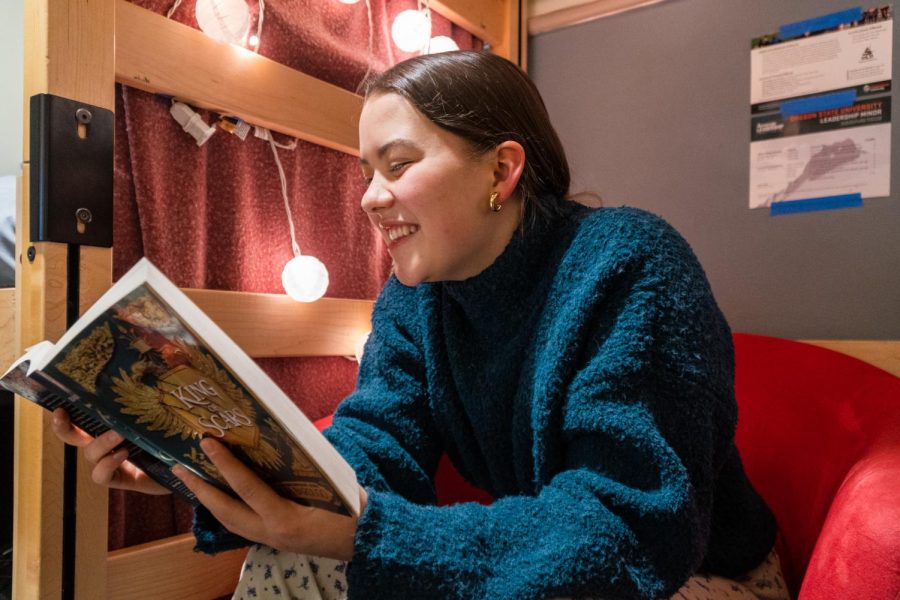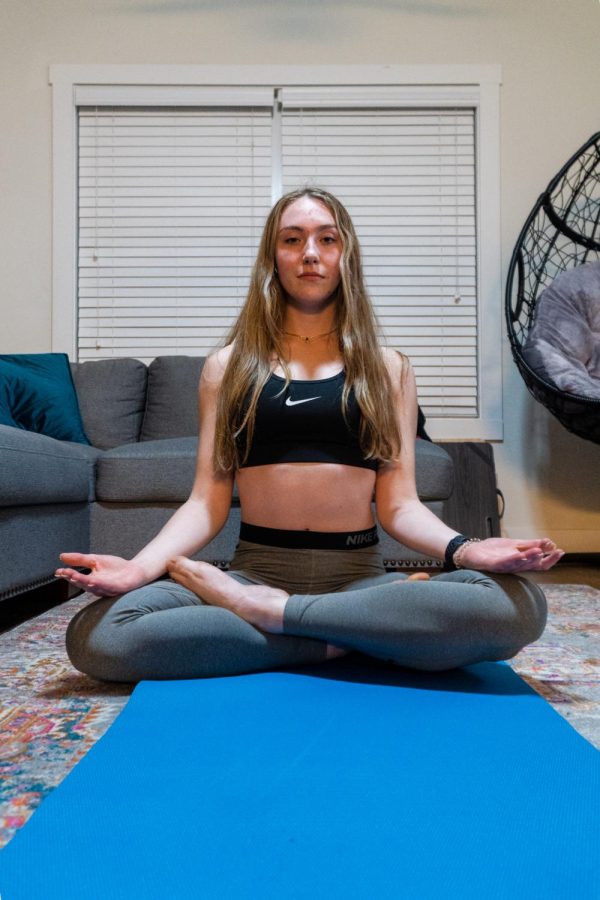Screen time overload? Here’s some ways to unplug and have fun
By Matthew McKenna, OMN Photographer
Efimya Kuzmin is a first year student reading “King of Scars” by Leigh Bardugo. Reading can be a great activity to do before bed in order to minimize screen time.
February 9, 2022
Screen time has been connected to physical and mental health issues, but there are ways to unplug and limit screen intake.
Some forms of screen time can be beneficial according to Jay VanDenBogaard, a substance use clinician with Student Health Services at Oregon State University. VanDenBogaard said gaming can have positive benefits. These benefits include “mood repair, cooperative skill building and social connectedness,” according to research cited by VanDenBogaard.
However, VanDenBogaard also addressed other research that suggests negative effects with internet use and gaming. VanDenBogaard referenced a study taken from 43,004 undergraduate students through the American College Health Association National College Health Assessment. In regards to the research, VanDenBogaard said, “10% of students reported problematic internet use/computer gaming—93% of those students reported at least one mental health indicator.”
Michele Ribeiro, a licensed psychologist at OSU, referenced an article by Sara Thomée, Annika Härenstam and Mats Hagberg that covered some computer use consequences such as “spending more time than planned at the computer, which then led to time pressure, neglect of other activities and personal needs, exposure to bad ergonomics and mental overload.” Ribeiro noted that the study reported cases of depression and sleep difficulties in the participants.
But it’s not just mental health that can be affected. Jadwiga Giebultowicz, professor emeritus, who remains a leader of Drosophila Genetics Group at OSU, conducted research along with undergraduates Rujul Kumar, Ben Ramsell, Kelsey Shimoda and Subisha Sundaram on the effects of blue light on fruit flies.
“What we observe is that fly eyes are damaged by excessive blue light,” Giebultowicz said. “Medical researchers studying cultured cells that are derived from human eyes, also report damage to these cells.”
Additionally, the flies’ nervous system was affected, which Giebultowicz said while tiny, can be compared to the human nervous system.
“Studies in humans suggest that blue light may contribute to photoaging of the skin,” Giebultowicz said. “Basic cellular functions, such as energy production in the form of ATP in mitochondria and other metabolic pathways are highly similar in fly and human cells.”
Giebultowicz explained why this is significant, “Since we discovered that strong blue light impairs mitochondria function in flies, it is possible that more subtle damage could occur in human cells exposed to blue light.”
Giebultowicz listed ways to take precautions against the effects of blue light. She said reducing screen time, minimizing blue light by switching to warmer settings on your devices and wearing amber-tinted glasses to protect your eyes are all strategies that can help.
Some students at OSU have noted the effects of screen time on their well beings. According to Megan Sherman, a student at OSU, screen time affects her sleep, especially depending on the context of what she’s seeing before bed.
R.J. Gorman, a student at OSU, said it depends on how the day goes, but screen time can make him not as productive, not in the best mood and make him want to just lay in bed.
Another student at OSU, Rylie Gubbins, said she often gets distracted on social media right before a due date which can make her more stressed to meet her deadlines.
However there are ways to manage your screen time. According to VanDenBogaard it’s helpful to set a predetermined quit time before sitting down to your console, PC or mobile device, and to take breaks of at least 15 to 30 minutes for meals, hydration, exercise, hygiene or sleep.
“[It’s good to] schedule activities outside of your screen time that guarantee you will ‘show up,’” VanDenBogaard said, adding that healthy incentives and rewards for completing these screen goals is a good idea. “Try free resources such as Habitica—a free habit and productivity app that treats your real life like a game.”
In terms of when you are working on a screen, Ribeiro suggested that taking small breaks from the computer or phone is important.

“The connection to nature has never been more vital than in today’s high computer/screen time use as well,” Ribeiro said. “So, going outside for a walk, just looking out a window, anything that can unplug you from the computer/phone for a bit [is important].”
Ribeiro listed some alternative activities to do screen-free, such as reading, drawing, painting, listening to music, playing board games, going for a hike, taking a yoga class, joining a meditation group, learning a new skill such as playing an instrument or knitting or participating in sports. She added that you can utilize OSU resources such as Dixon Recreation Center or the Craft Center.

For Gorman, he likes to go hiking, climbing, getting out to socialize with friends—anything to get him out of the house. Additionally, Sherman noted that talking with friends or cooking helps her get off her screens.
“Just make a goal to unplug for as much time as you can and do things like they were done in the past, without a computer,” Ribeiro said.







